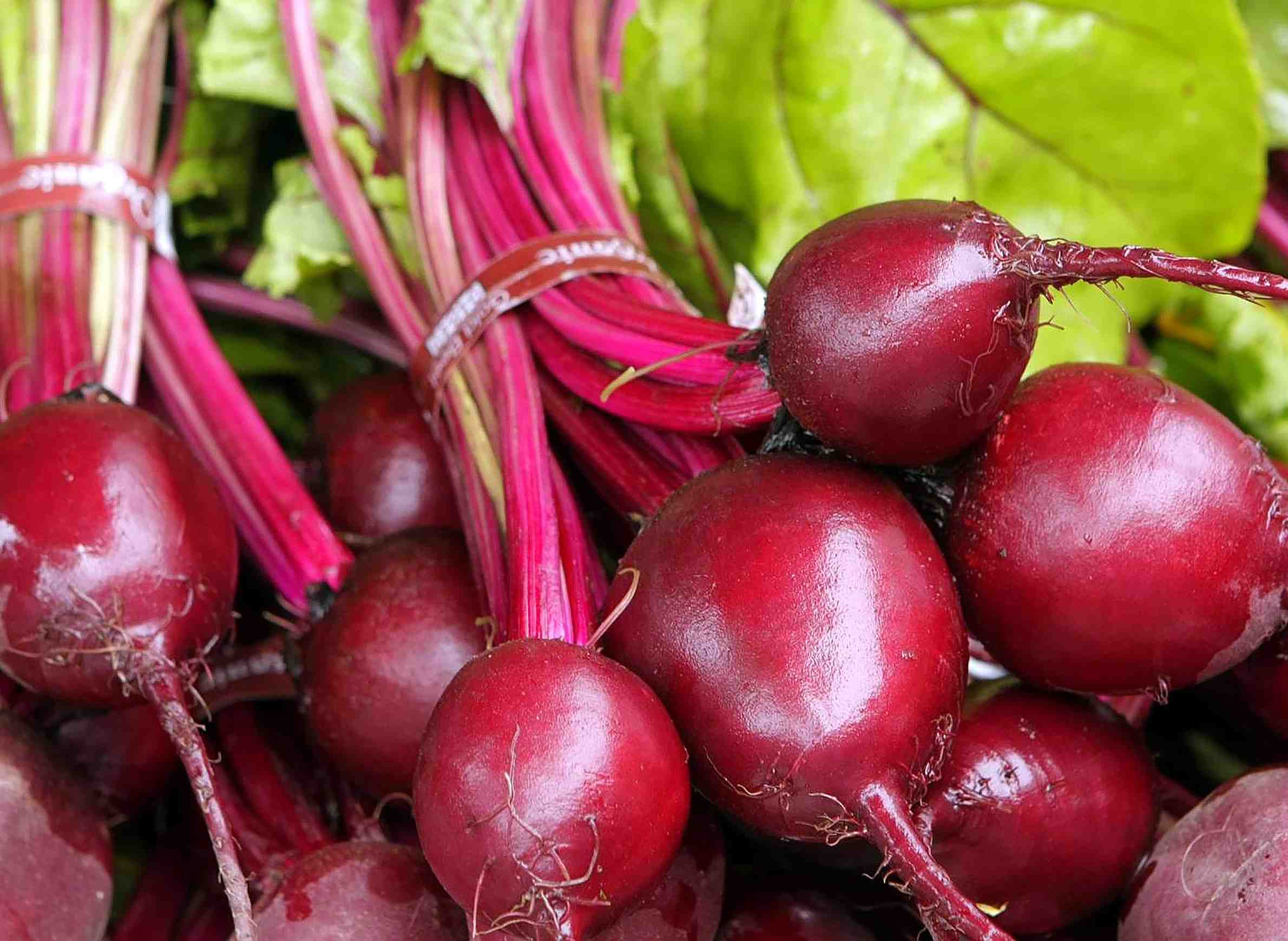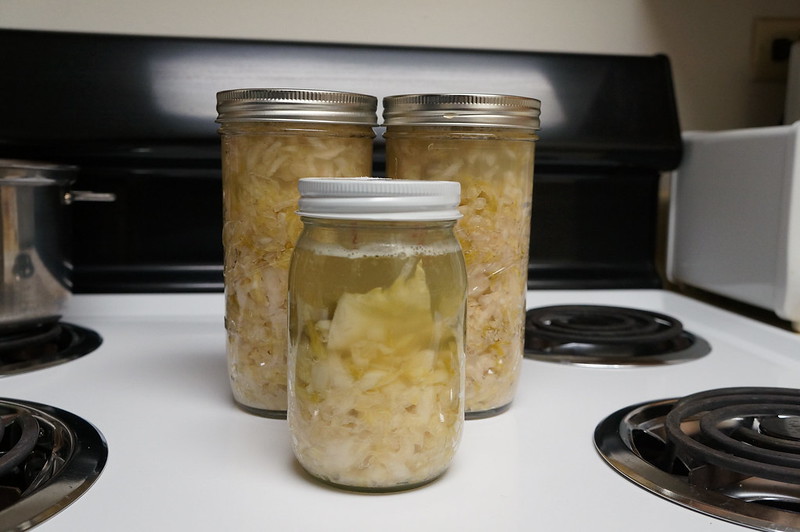A plan unveiled this week would take humans to Mars. What can we expect from the first mission to the Red Planet? We talk to a science writer to find out more. We also find out how to ferment just about anything, and we’ll learn about the last minute budget passed by Congress.
Featured in this Show
-
Congress Passes Last-Minute Spending Bill, Senate Overrides Presidential Veto
Congress passed a last minute budget bill to stave off a government shutdown. And the Senate passed a nearly unanimous resolution to override President Obama’s veto on a 9/11 bill. We hear from USA Today Washington Bureau Reporter Donovan Slack about the news.
-
Why And How To Ferment Just About Anything
Fermentation Fest starts this weekend. For nine days, this Reedsburg festival celebrates live culture of all types, from art to sauerkraut and poetry to pickles. And when it comes to making the perfect, crunchy pickle or batch of sauerkraut–and learning about all the good it does for the body–who better to ask than fermentation master Sandor Katz?
-
Fermentation Zests Up Flavor And Health, Food Writer Says
While the word “fermentation” may have some people wrinkling their noses, a world without fermentation might be a bleak one. It would mean no coffee, chocolate, vanilla, bread, cheese, cured meats and most of your favorite condiments.
“Almost every individual in almost every part of the world eats and drinks products of fermentation almost every day,” Sandor Katz, food writer and activist, said. “You don’t have to be aware of it to enjoy the flavors of fermentation.”
In fact, as Katz points out, “all of our greatest delicacies are products of fermentation.”
A self-proclaimed “fermentation revivalist,” Katz is working to recover the skills, knowledge and cultural practices around fermentation, which used to be passed on from generation to generation. In our current age of fast food, mass production and one-stop shopping, fermentation has lost its place as a flavor-enhancing and health-producing practice, Katz said.
“(These cultural practices) are in need of revival at the exact same time as we are in need of more nutritious food and a greater connection to our food and how it’s produced,” said Katz who wrote the “Art of Fermentation: An In-Depth Exploration of Essential Concepts and Processes from around the World” and “Wild Fermentation: The Flavor, Nutrition, and Craft of Live-Culture Foods,” which has just been revised and updated.
Fermentation, which Katz defines as “the transformative action of microorganisms,” is a cultural practice that can have profound impacts on health, he said.
“There is all this new interest in the microbiome and recognition that the bacteria that are part of our bodies play incredibly huge roles in terms of our ability to effectively digest food, in terms of our immune function,” said Katz. “We’re learning that it also extends to our mental health and almost every aspect of our functionality.”
Katz said exposure to chemicals, anti-bacterial products and antibiotics have left most people with “diminished biodiversity” of the friendly forms of bacteria essential to health. He points to 20th Century America’s veritable “war on bacteria” that has vilified microorganisms as the source of germs and disease and possible death. Yet, in recent decades, science has come to recognize that not only are bacteria the building blocks of life, but no multicellular form of life is possible without bacteria.
“We could not possibly thrive — we probably couldn’t survive — without them,” Katz said. “We are utterly dependent on bacteria, which, in a certain way, are our ancestors.”
Bacteria are what really protects us against those disease-producing germs and pathogens, which Katz said are quite limited in range.
“Eating sauerkraut, yogurt, other kinds of fermented foods that have not been cooked or heat processed so that the bacteria are still alive and intact, is a great way of restoring biodiversity in our intestines so we can have better overall digestion, better overall immune function and potentially better overall health,” Katz said.
Home fermentation is simple, as Katz proved with this “how to,” which he said can be applied to any vegetable or combination of vegetables.
How To Ferment Just About Any Vegetable:
- Chop or grate the vegetables.
- Lightly salt to taste.
- Squeeze them (5 to 10 minutes until they’re “nice and juicy, almost like a wet sponge,” Katz said).
- Stuff into a jar (a wide-mouthed quart jar will do fine; it takes about 2 lbs. of veggies).
- Submerge the vegetables under their own juices.* (A rolled cabbage leaf below the jar’s lid will do the trick.)
- Ferment: anywhere from three days to three weeks, depending on how sour you like it.
- Store in a cool spot (in a cellar or similar cool spot, you can ferment it slowly all winter long).
*This is the essential step that will prevent them from getting mold.
You can catch Sandor Katz and a host of other fermentation experts at Fermentation Fest, which starts this weekend in Reedsburg, WI.
-
Where Are We Going? Mars! When Are We Going? Real Soon!
SpaceX founder Elon Musk unveiled his vision for human colonization of Mars–with the first travelers leaving as soon as 2022. A guest says it’s a bold vision–but not a sure thing.
Episode Credits
- Rob Ferrett Host
- Veronica Rueckert Host
- J. Carlisle Larsen Producer
- Marika Suval Producer
- Rob Ferrett Producer
- Donovan Slack Guest
- Sandor Ellix Katz Guest
- Rebecca Boyle Guest
Wisconsin Public Radio, © Copyright 2025, Board of Regents of the University of Wisconsin System and Wisconsin Educational Communications Board.



